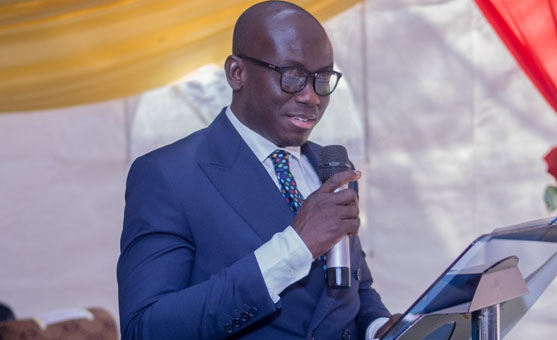The Attorney General and Minister of Justice, Godfred Dame, has described parts of the anti-LGBTQI+ bill as unconstitutional.
In an opinion to the Chairman of the Committee on Constitutional, Legal and Parliamentary Affairs of Parliament, the Attorney General said the bill will face some challenges when implemented, adding that some provisions will violate some fundamental human rights and freedoms, particularly the right to privacy.
The anti-LGBTQI+ bill seeks to criminalise activities of persons who hold out as lesbian, gay, transgender, transsexual or queer, persons who hold divergent socio-cultural notions of sex, persons with a biological anomaly regarding their gender at birth, persons involved in the promotion of or advocacy and funding for lesbian, gay, bisexual, transgender and queer related activities, as well as persons who conduct surgical procedures to reassign an individual’s gender except for medical purposes.
The Bill further imposes a duty on citizens and relevant independent constitutional bodies to promote and protect proper human sexual rights and Ghanaian family values.
The Bill also makes any union or marriage entered into by persons of the same sex and persons who have undergone gender or sex reassignment void.
But in his opinion, the Attorney-General stated that “parts of the Bill in its present form violate some fundamental rights and freedoms enshrined in the Constitution, including the right to freedom of expression, thought and conscience and freedom from discrimination. Other provisions of the Bill, however, pass the test of constitutionality.”
The Attorney General added that “Unnatural carnal knowledge is defined by section 104(2) as “sexual intercourse with a person in an unnatural manner, or with an animal”.
“Thus, unnatural carnal knowledge of a person of at least 16 years with the consent of that person and unnatural carnal knowledge of an animal is already criminalised by Act 29 as a misdemeanour. The Bill, however, seeks to categorise the offence as a second-degree felony, making it inconsistent with the Criminal and Other Offences (Procedure) Act, 1960 (Act 30), which classifies offences in Ghana generally and their correlative punishments.
“It would, however, be observed that not all forms of unnatural carnal knowledge or sexual intercourse between persons of the same sex have been criminalised by current Ghana law. This is because section 99 of Act 29 on “Evidence of carnal knowledge” prescribes for evidence of carnal knowledge to be “complete on proof of the least degree of penetration.”
“Thus, it would appear that sexual intercourse or unnatural carnal knowledge between or among persons of the female sex, for instance, is not criminalised by current Ghana law. To this extent, subparagraph (a) of paragraph 1 of clause 6 can be seen to state a broader prohibition on unnatural carnal knowledge or sexual intercourse between persons of the same sex as known to Ghana law. The provision is not unconstitutional.”


Comments are closed.